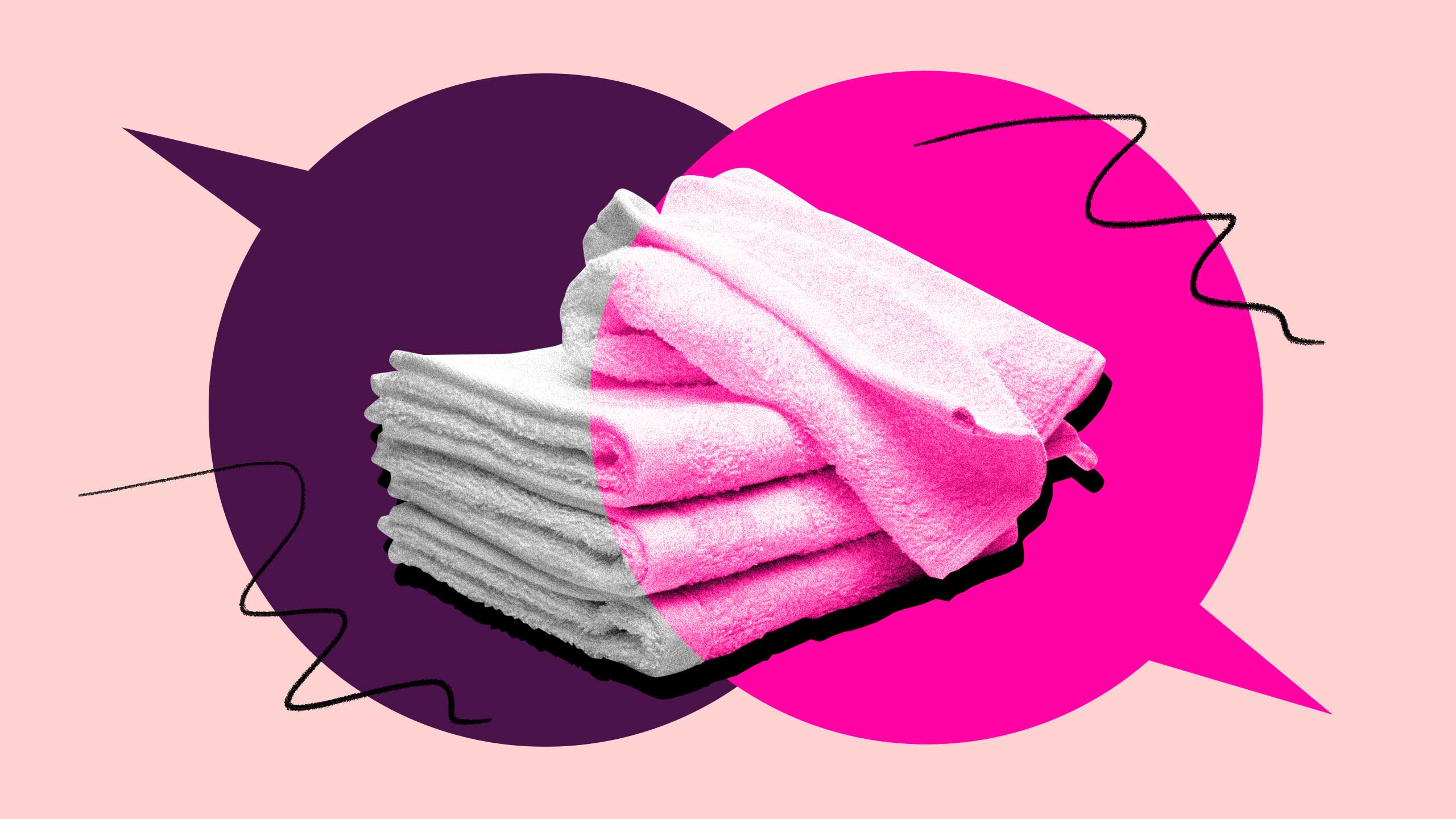A couple of years ago, I wrote a piece addressing incontinence as a public health issue that sparked a lot of conversations: disabled readers told me it was the first time they saw their experiences with incontinence reflected in print. I also heard from many non-disabled queer people who confided in me about instances of incontinence, like wetting themselves after a night of drinking or substance use.
The feedback made me realize that experiences of incontinence weren’t isolated to the disabled community—they were actually pretty universal. Yet, when I decided to revisit the idea of incontinence with this story and sought non-disabled sources, I struggled to find anyone willing to share a story about incontinence in the bedroom on the record. Queers routinely break norms and taboos, so why are we still afraid to talk about functions all our bodies perform?
“[Bladder] incontinence is a very common issue, but one I think oftentimes people don’t feel comfortable talking about to their friends or partners, or even their doctors,” says Yonah Krakowsky, a urologist and medical lead for the gender clinic at Women’s College Hospital in Toronto. “So we see a lot of people who’ve had incontinence for years and never brought it up.”
Jose Torres, a gay man based in Texas who has opted to use a pseudonym due to fear of stigma, knows this discomfort first-hand. “When you have incontinence, it’s viewed as a failure, like something to be ashamed of, like something you should be able to control,” he explains.
Torres sustained a spinal injury at 13 from playing football, and to this day the 26-year-old experiences back and bladder spasms as a result. He feels a lot of shame around his incontinence, and will often avoid sex altogether when he’s been experiencing frequent bladder spasms.
Stigma ultimately means that many disabled queers predisposed to incontinence—like myself—face a lot of anxiety around hookup culture and relationships.
I remember a time, about five years ago, when I was so afraid to sleepover at a casual partner’s apartment that I rejected their offer twice. I finally agreed on the third offer. But while they slipped into a gentle snore, I remained awake most of the night, only falling into fits of dozing that I’d quickly jolt from out of fear that if I slept too deeply we might find ourselves in an uncomfortable situation. I haven’t spent the night with a casual partner since.
Many other queer disabled people I spoke to while researching this story said they also avoided sleepovers with new partners. Several said that the stigma they feel means that pursuing any sexual or romantic relationship has to be considered much more carefully.
Some aspects of what we consider “queer culture” can be actively exclusionary to disabled folks who experience incontinence or other health issues. Some queer play partners, for example, may have certain expectations regarding sex that are just incongruent with what we are able to do.
Hope Adler, a Toronto-based disabled Indigenous artist, has ulcerative colitis and has undergone several surgeries, most recently a permanent ostomy bag which means they no longer have a rectum. Adler described how queer partners were more likely than straight ones to try to guilt them into performing anal sex when they don’t understand Adler’s anatomy.
“In queer community, a lot of people want to claim they’re very accepting but when someone sets boundaries or expectations they don’t like, it can turn into hostility,” says Adler. A lack of acceptance is also apparent in the way the queer community often infantalizes and desexualizes disabled people, especially those with “bathroom diseases,” they say.
This is something that Alexander, a gay, disabled First Nations man in his late 60s, also described. (He has also chosen to go by a pseudonym to avoid stigma at work.) He recalls a friend who has become essentially celibate now that they are a wheelchair user.
Alexander lived in Toronto and Thunder Bay before moving to a reserve in northwestern Ontario at the end of last year. His move was motivated by the ableism, ageism and fatphobia he felt was pervasive among younger, non-disabled queer folks he encountered on apps like Grindr.
Before colonization, he says, disabled people and elders were celebrated for the unique wisdom they could share. But today, a fear of aging in the community has caused queer folks to lose touch with elders.
There is so much knowledge to learn from disabled and elder queers though, he says. Those teachings could prepare non-disabled queer and trans people to better face the process of aging. “Your body goes through entropy, it falls apart,” Alexander warns. “You are only young and abled for a short time of your life.”
This is advice that Michel Dumont, a disabled Indigenous artist in his 50s based in Thunder Bay, wished that he had taken sooner. When he started experiencing incontinence as a result of aging, he felt too embarrassed to talk to his partner about it. Over time, a lack of communication created an emotional distance between the pair, and they eventually broke up.
“When you’re in a relationship, you shoulder the burdens together and when you stop doing that, it’s going to open a wedge,” said Dumont.
It wasn’t until after the end of his relationship that Dumont began to speak frankly with older friends about their own difficulties “turning off their hoses” or having their prostate press on their bladder. He told me that he believed that if he had started sooner, his romantic relationship could have been saved. Joking around with friends made talking about incontinence less intimidating, which could have opened up conversations with his partner.
Some younger disabled queers are trying to start conversations about incontinence on a larger scale. “It’s scary to always be afraid of being too much or pissing myself or shitting myself or blood,” says jes sachse, a disabled activist and former sex worker from Toronto. The rigid ideas many people hold about hygiene and cleanliness cause sachse a lot of anxiety. These are expectations she knows she can’t meet, since her disabilities mean that accidents are bound to happen.
She encourages people to remember that a lot of the systems involved in both bathroom functions and sex are close together, so when there’s a lot of pressure from sex, it’s not unusual for urine or feces to come out. “Remember that a body will do that—it’s not in spite of, it’s because the sex is great,” sachse says.
And there are already environments that have normalized these outcomes. As a former volunteer at the Pleasure Palace bathouse, sachse would come across all kinds of bodily fluids—that’s why the bathhouse stocked all the rooms with every kind of protection and cleaning supplies patrons might need.
Torres agrees that open communication can lead to better sex. He points out that his experiences with queer partners and community have a certain openness and creativity that could lend itself perfectly to adapting to unexpected plumbing problems. And having a more normalized consent culture in queer community, Torres says, can make it easier to speak with partners about what his limitations and needs are for sex, so they can be prepared and informed about how to move forward.
“How are you going to have enjoyable sex if you can’t communicate your desires plus issues that might come up?” he asked.
There’s a world of options for keeping things easy to clean and safe: gloves, dental dams and other protection to avoid transmission of fecal matter. Toys—especially those made of glass—can be cleaned quickly between acts, and mats, towels or sheets can be laid down in advance to catch messes.
sachse told me how she likes to get excited about finding the right gloves or toys for a sexual encounter. And Dumont joked about how sometimes incontinence means having to “change the items on the menu,” but how that can still be fun.
Once we can get past talking about the things our bodies produce, like urine and stool, it means we can prepare for it. It doesn’t have to be an uncomfortable interruption; it can be just another messy part of pleasurable sex.


 Why you can trust Xtra
Why you can trust Xtra


